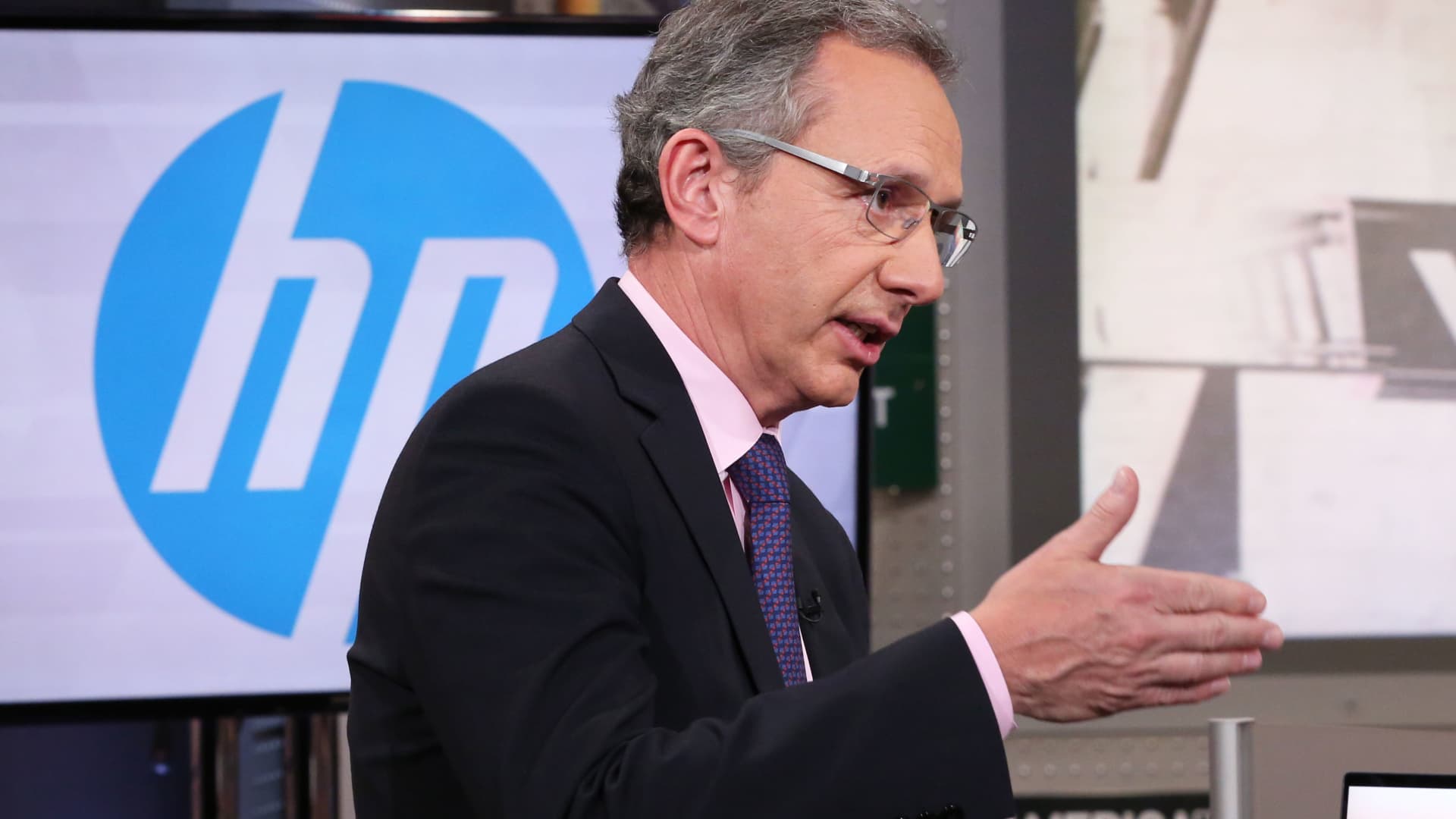Shares of HP fell more than 8% Wednesday morning after the printer and PC-maker released fiscal third quarter earnings that underwhelmed Wall Street.
HP reported $13.2 billion in revenue, down from the $13.37 billion expected by analysts, according to Refinitiv. Earnings per share came in line with expectations at 86 cents, excluding items. The company also offered weak guidance, citing the fact that PC pricing has not improved as much as it had hoped.
Analysts at Bernstein said HP’s quarter was “disappointing,” but that PC revenues will likely improve going forward. However, the analysts wrote that the company’s printing business may be more of a sticking point.
“Weak printer shipments may impact supplies growth in the medium term, HPQ’s margins remain above pre-pandemic levels, and we worry about the structural health of the printing business and its ability to grow over time,” the analysts wrote in a Wednesday note.
Similarly, analysts at Credit Suisse said HP’s print segment remains their biggest concern, especially because of discussion about “long term weakness” and a possible need for “more aggressive pricing.” The analysts wrote in a Wednesday note that they are lowering their fiscal fourth quarter estimates and fiscal full-year estimates for the company.
Deutsche Bank analysts also trimmed their outlook for HP and lowered their price target from $32 to $30. They said the company delivered results that were “roughly in-line” but that it has been impacted by “weaker demand driven by slower recovery in China,” as well as a gloomy long-term outlook for its print business.
Even so, the Deutsche Bank analysts said there are positive components of the report.
“Despite a tough demand environment, we continue to be impressed with HPQ’s ability to generate solid operating margins for both segments,” the analysts wrote Tuesday. “We are also encouraged that the company plans to restart share repurchases to at least offset dilution in the near term.”
